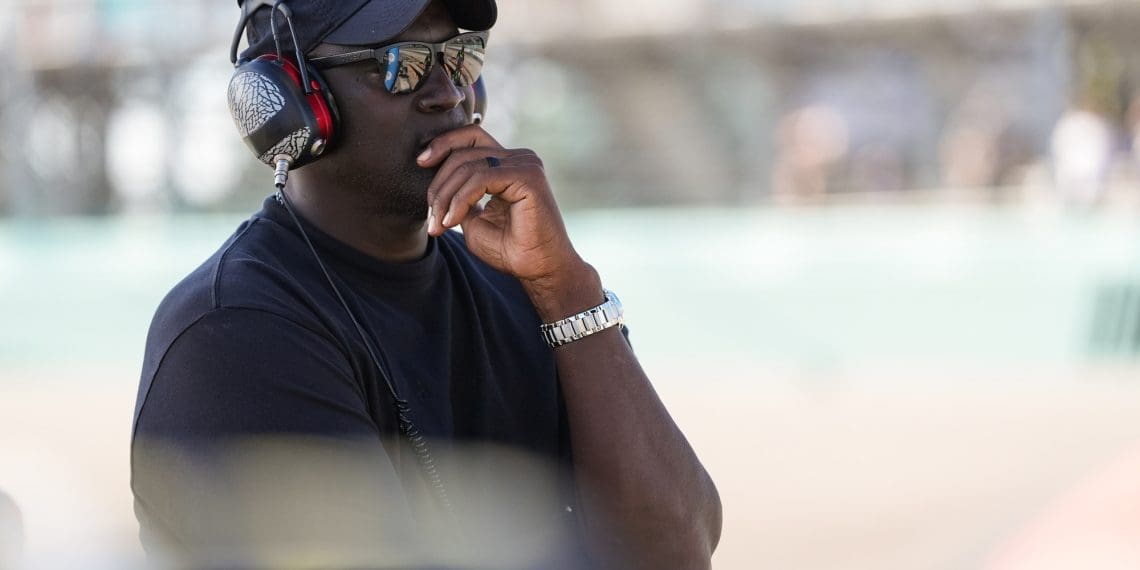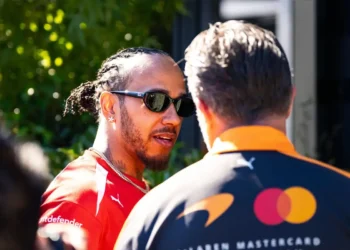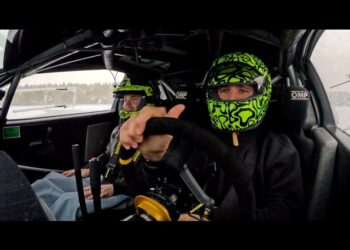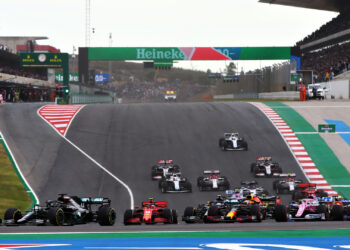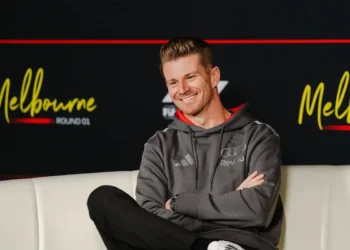NASCAR’s Changing Landscape
Once a sport defined by its drivers, NASCAR is undergoing a cultural shift where team owners and former racers like Dale Earnhardt Jr. and Michael Jordan have emerged as the sport’s most influential figures. While today’s roster boasts talented drivers like Kyle Larson, Chase Elliott, Joey Logano, and Denny Hamlin, none have managed to transcend the sport and captivate audiences like legends Richard Petty, Dale Earnhardt, or Jeff Gordon.
This evolution is causing many to question: Why have NASCAR drivers lost their larger-than-life appeal?
From Heroes to Headlines: The Evolution of NASCAR Fandom
In the golden age of NASCAR, drivers were not just athletes—they were cultural icons. Fans rallied behind drivers and their manufacturers, whether Ford, Dodge, or Chevrolet. Rick Mast, a veteran racer, reflected on this era during Kenny Conversation, reminiscing about a time when drivers were revered like rock stars.
“These drivers I raced against were worshiped; they were heroes,” Mast said. “I’m not talking about just a group of fans being fanatical; I’m talking about 500 fans—all 500 were fanatical.”
This fandom extended beyond the track. U.S. President Ronald Reagan famously attended Richard Petty’s 200th win at Daytona, and Hollywood immortalized the sport with films like Days of Thunder, which drew inspiration from the life of Jeff Gordon.
The Current State of NASCAR’s Drivers
While the current generation of drivers is undeniably talented, their inability to break into mainstream pop culture is a concerning trend. Despite their on-track accomplishments, none have managed to command the spotlight in a way that resonates beyond the sport’s core audience.
Mark Martin, another NASCAR legend, recently weighed in on this issue, acknowledging the lack of driver-driven appeal but also offering a possible solution to reignite the sport’s cultural relevance.
The Rise of Owners as Influencers
As drivers struggle to capture the public’s imagination, figures like Dale Earnhardt Jr. and Michael Jordan have stepped in to fill the void.
Dale Jr., a retired racer, has become a prominent voice in NASCAR through his Dale Jr. Download podcast and as the co-owner of JR Motorsports. His insights into the sport and connection to its history have made him a trusted figure among fans.
Michael Jordan, on the other hand, has injected star power into NASCAR by co-owning 23XI Racing alongside Denny Hamlin. Jordan’s global influence and ability to attract new audiences have made him one of the most important figures in the sport today.
These personalities have become the face of NASCAR’s evolving identity, but their rise also highlights a troubling reality: the sport’s drivers are no longer its most recognizable ambassadors.
Why the Magic Faded
Rick Mast offered a nostalgic perspective on why drivers are no longer worshiped as they once were:
“If you go back to the 50s and 60s and really through the 80s, everybody was a Ford guy or a Dodge Chrysler guy or a Plymouth guy,” Mast said. “It seemed like there was always this argument where the fans had a manufacturer or a driver.”
In today’s NASCAR, the tribalism that fueled passionate fandom has faded. The focus has shifted from the visceral rivalries between drivers and manufacturers to a broader, more commercialized approach. This has diluted the emotional connection between fans and the sport.
Can NASCAR Bring Back the Glory Days?
Mark Martin believes there’s hope for NASCAR to reignite its cultural relevance. His solution lies in refocusing on storytelling—showcasing the personal journeys, struggles, and triumphs of the drivers. By creating compelling narratives, NASCAR can foster deeper connections between its stars and the fans.
Meanwhile, leveraging the influence of figures like Jordan and Earnhardt Jr. could help bridge the gap between NASCAR’s past and present, attracting both traditional and new audiences.
The Road Ahead
NASCAR’s future depends on its ability to balance the appeal of its influential owners with a renewed effort to elevate its drivers as cultural icons. By rekindling the passion that once defined the sport, NASCAR could once again capture the imagination of fans and reclaim its place in the American zeitgeist.

